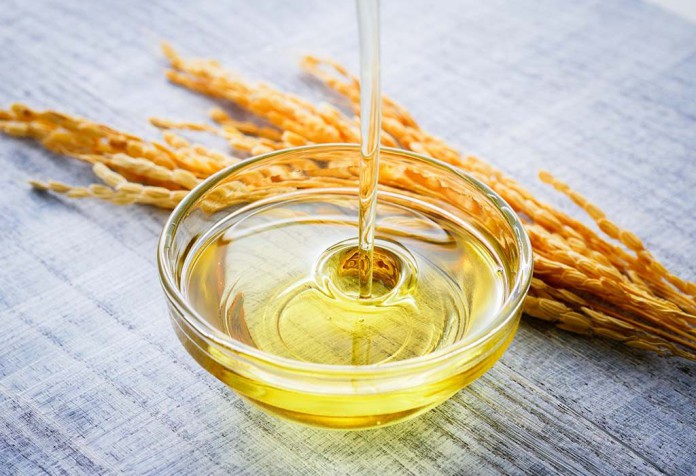Fats and oils are generally required for the absorption of fat soluble vitamin like A, D, E, and K. Fat soluble vitamin are those where leftover amounts are stored in the liver and fat tissues as reserves. The Feeling of fullness and satisfaction and thus, delay the onset of hunger. Fats and oil helps proving energy to the body, help maintain body temperature, and protecting body tissue and organ.
cooking oils can balance vitamins
The requirements of fats and oil is half a litre per person per month or 3 teaspoons per day. 20 to 35 percent of your daily calories should come from fats and oils.
Fats that are used during cooking (vegetable oils, vanaspati, butter and ghee) are termed as “visible” fats. Fats that are present as integral components of various foods are referred to as “invisible” fat.

Important Announcement – EasyShiksha has now started Online Internship Program “Ab India Sikhega Ghar Se”

Top Courses in Virtual Reality
More Courses With Certification
Dietary fats are divided into four groups; each has different roles inside the body
Saturated fat: These are the fat which contributes for heart diseases and stroke because they raise LDL blood cholesterol levels.
Monounsaturated fats and Polyunsaturated fats: these fats help to lower LDL cholesterol
Trans fat: when vegetable oil is processed to make them harder some of the unsaturated fatty acids are changed to trans fats
Fat containing foods
Saturated fats – sources include fatty cuts of meat, full-fat milk, cheese, butter, cream, most commercially baked products such as biscuits and pastries, most deep-fried fast foods, coconut and palm oil.
-
Top Courses in Software Engineering Top Courses in Software Engineering
Loading...
Monounsaturated fats – sources include avocado, and nuts such as peanuts, hazelnuts, cashews and almonds (including peanut and other nut butters), margarine spreads such as canola or olive oil based choices, oils such as olive, canola and peanut.
Polyunsaturated fats – sources include fish, seafood, polyunsaturated margarines, vegetable oils such as safflower, sunflower, corn or soy oils, nuts such as walnuts and Brazil nuts, and seeds.
Trans fats – these fats are found in milk, cheese, beef and lamb
Vitamin A is found in fish oils
Vitamin E is found in cooking oil such as – rice bran oil, seeds and nuts.
Vitamin D – Your skin cells can synthesize with the help of sunshine and cholesterol, and this vitamin helps your body metabolize calcium in support of bone health and nerve function.
Vitamin K – vegetable oils, spinach, tomatoes and beans.
The requirement of vitamin E for our body is 15mg /day so the daily intake of fats and oil should be sufficient for the body
Top Courses in Networking
Empower your team. Lead the industry
Get a subscription to a library of online courses and digital learning tools for your organization with EasyShiksha
Request NowQ. Are EasyShiksha's internships truly free?
Yes, all internships offered by EasyShiksha are completely free of charge.
Q. How can I apply for an internship with EasyShiksha?
You can apply by visiting our website, browsing available internships, and following the application instructions provided.
Q. What types of internships are available through EasyShiksha?
EasyShiksha offers a wide range of internships across technology, business, marketing, healthcare, and more. Opportunities are continuously updated.
Q. Will I receive a certificate upon completing an internship?
Yes, upon successful completion, you will receive a certificate recognizing your participation and achievements.
Q. Are EasyShiksha's internship certificates recognized by universities and employers?
Yes, the certificates are recognized by universities, colleges, and employers worldwide.
Q. Is the download of certificates free or paid?
Access to internships and courses is free, but there is a small fee to download certificates, covering administrative costs.
Q. When can I start the course?
You can choose any course and start immediately without delay.
Q. What are the course and session timings?
These are fully online courses. You can learn at any time and pace. We recommend following a routine, but it depends on your schedule.
Q. What will happen when my course is over?
After completion, you will have lifetime access to the course for future reference.
Q. Can I download the notes and study material?
Yes, you can access and download course materials and have lifetime access for future reference.
Q. What software/tools would be needed for the course?
All necessary software/tools will be shared during the training as needed.
Q. I’m unable to make a payment. What should I do?
Try using a different card or account. If the problem persists, email us at info@easyshiksha.com.
Q. Do I get the certificate in hard copy?
No, only a soft copy is provided, which can be downloaded and printed if required.
Q. The payment got deducted but shows “failed”. What to do?
Technical errors may cause this. The deducted amount will be returned to your account in 7-10 working days.
Q. Payment was successful but dashboard shows ‘Buy Now’?
Sometimes payment reflection is delayed. If it takes longer than 30 minutes, email info@easyshiksha.com with the payment screenshot.
Q. What is the refund policy?
If you face technical issues, you can request a refund. No refunds are issued once the certificate has been generated.
Q. Can I enroll in a single course?
Yes, select the course of interest, fill in the details, make payment, and start learning. You will also earn a certificate.
Q. My questions are not listed above. I need further help.
Contact us at info@easyshiksha.com for further assistance.
ALSO READ: 50-tickets-women-candidates
Get Course: Basic-of-E-Commerce









































































